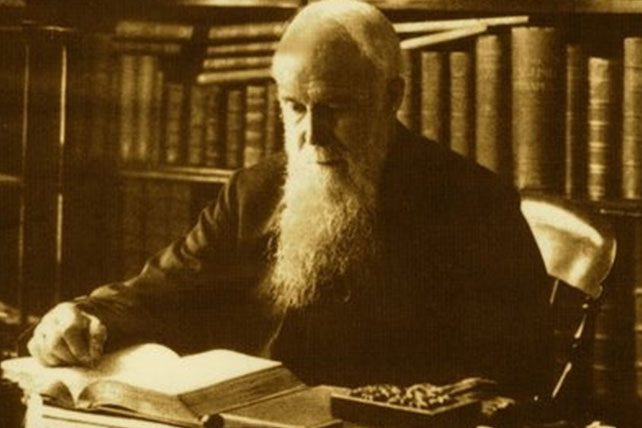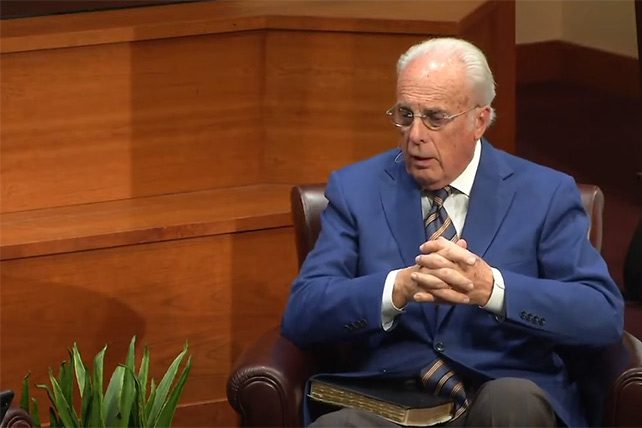Editor’s Note: J.C. Ryle first wrote these words about being a true Christian to his English congregation in 1878. His important message is as powerful today as when he first wrote it.
Let us go again and visit our brethren in every city where we have preached the word of the Lord and see how they do. (Acts 15:36).
The text which heads this page contains a proposal which the Apostle Paul made to Barnabas after their first missionary journey. He proposed to revisit the churches they had been the means of founding, and to see how the were getting on. Were their members continuing steadfast in the faith? Were they growing in grace? Were they going forward—or standing still? Were they prospering, or falling away? “Let us go again and visit our brethren in every city where we have preached the word of the Lord—and see how they do.”
This was a wise and useful proposal. Let us lay it to heart, and apply it to ourselves in the 19th century. Let us search our ways, and find out how matters stand between ourselves and God. Let us “see how we do.” I ask every reader of this volume to begin its perusal by joining me in self-inquiry. If ever self-inquiry about religion was needed—it is needed at the present day.
We live in an age of particular spiritual danger. Never perhaps since the world began, was there such an immense amount of mere outward profession of religion as there is in the present day. A painfully large proportion of all the congregations in the land consists of unconverted people, who know nothing of heart-religion, never come to the Lord’s Table and never confess Christ in their daily lives. Myriads of those who are always running after preachers, and crowding to hear special sermons—are nothing better than empty tubs, and tinkling cymbals—without a bit of real vital Christianity at home. The parable of the sower is continually receiving most vivid and painful illustrations. The way-side hearers, the stony-ground hearers, the thorny-ground hearers—abound on every side!
Are You a True Christian?
The life of many religious people, I fear, in this age, is nothing better than a continual course of chasing after novelties. They are always morbidly craving fresh excitement; and they seem to care little what it is—if they only get it. All preaching seems to be the same to them; and they appear unable to “see differences” so long as they hear what is clever, have their ears tickled and sit in a crowd. Worst of all, there are hundreds of young unestablished believers who are so infected with the same love of excitement, that they actually think it a duty to be always seeking it. Insensibly almost to themselves, they take up a kind of hysterical, sensational, sentimental Christianity—until they are never content with the “old paths;” and, like the Athenians, are always running after something new!
To see a calm-minded young believer, who is not stuck up, self-confident, self-conceited, and more ready to teach than learn—but content with a daily steady effort to grow up into Christ’s likeness, and to do Christ’s work quietly and unostentatiously, at home—is really becoming almost a rarity! Too many young professors, alas, behave like young recruits who have not spent all their bounty money. They show how little deep root they have, and how little knowledge of their hearts—by noise, forwardness, readiness to contradict and set down old Christians, and over-weaning trust in their own imagined soundness and wisdom! Well will it be for many young professors of this age if they do not end, after being tossed about for a while, and “carried to and fro by every wind of doctrine,” by joining some petty, narrow-minded, censorious sect, or embracing some senseless, unreasoning crotchety heresy. Surely, in times like these there is great need for self-examination. When we look around us, we may well ask, “How do we do about our souls?”
In handling this question, I think the shortest plan will be to suggest a list of subjects for self-inquiry—and to get them in order. By so doing I shall hope to meet the case of every one into whose hands this volume may fall. I invite every reader of this paper to join me in calm, searching self-examination, for a few short minutes. I desire to speak to myself as well as to you. I approach you not as an enemy—but as a friend. “My heart’s desire and prayer to God is that you may be saved” (Romans 10:1). Bear with me if I say things which at first sight look harsh and severe. Believe me—he is your best friend, who tells you the most truth.
1. Do we ever think about our souls at all?
Thousands of people, I fear, cannot answer that question satisfactorily. They never give the subject of religion any place in their thoughts. From the beginning of the year to the end—they are absorbed in the pursuit of business, pleasure, politics, money, or self-indulgence of some kind or another. Death, and judgment, and eternity, and Heaven, and Hell, and the world to come—are never calmly looked at and considered. They live on as if they were never going to die, or rise again, or stand at the bar of God, or receive an eternal sentence! They do not openly oppose religion, for they have not sufficient reflection about it to do so; but they eat and drink, and sleep, and get money, and spend money—as if religion was a mere fiction, and not a reality. They are neither Romanists, nor Socinians, nor infidels, nor High Church, nor Low Church, nor Broad Church. They are just nothing at all, and do not take the trouble to have opinions.
A more senseless and unreasonable way of living cannot be conceived; but they do not pretend to reason about it. They simply never think about God—unless frightened for a few minutes by sickness, death in their families, or an accident. Barring such interruptions, they appear to ignore religion altogether, and hold on to their way cool and undisturbed, as if there were nothing worth thinking of, except this poor world.
It is hard to imagine a life more unworthy of an immortal creature, than such a life as I have just described, for it reduces a man to the level of a beast! But it is literally and truly the life of multitudes in England; and as they pass away—their place is taken by multitudes like them. The picture, no doubt, is horrible, distressing, and revolting—but, unhappily, it is only too true. In every large town, in every market, on every stock-exchange, in every club—you may see specimens of this class by the scores—men who think of everything under the sun, except the one thing needful—the salvation of their souls. Like the Jews of old they do not “consider their ways,” they do not “consider their latter end;” they do not “consider that they do evil” (Isaiah 1:3; Haggai 1:7; Deuteronomy 32:29; Ecclesiastes 5:1). Like Gallio they “care for none of these things” (Acts 18:17).
If they prosper in the world, and get rich, and succeed in their line of life—they are praised, and admired by their contemporaries. Nothing succeeds in England like success! But for all this, they cannot live forever. They will have to die and appear before the bar of God, and be judged; and then what will the end be? When a large class of this kind exists in our country—no reader need wonder that I ask whether he belongs to it. If you do, you ought to have a mark set on your door, as there used to be a mark on a plague-stricken house two centuries ago, with the words, “Lord have mercy on us,” written on it. Look at the class I have been describing, and then look at your own soul.
See Page Two for more marks of a true Christian . . .


















